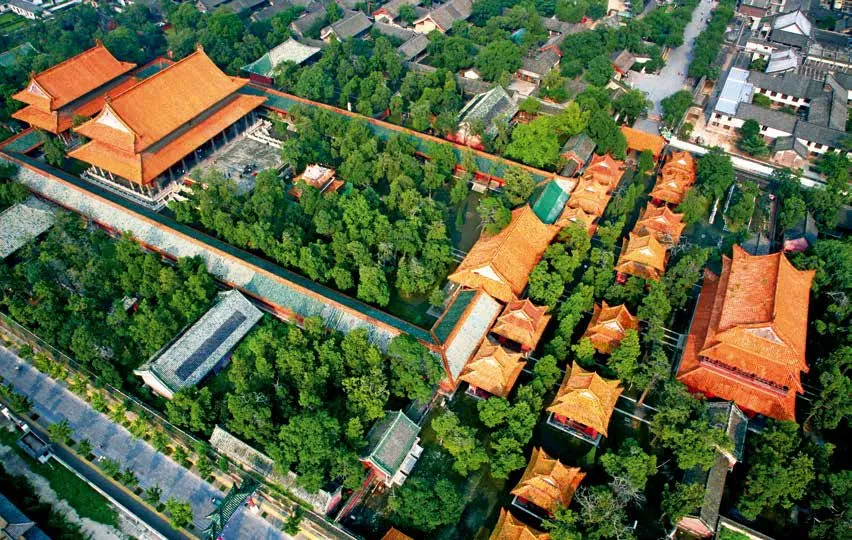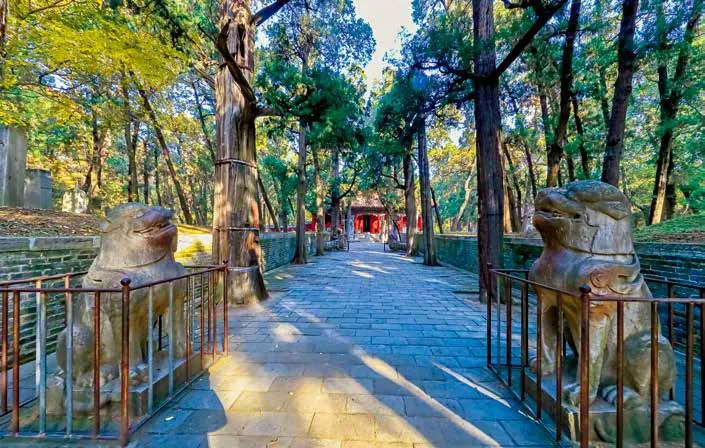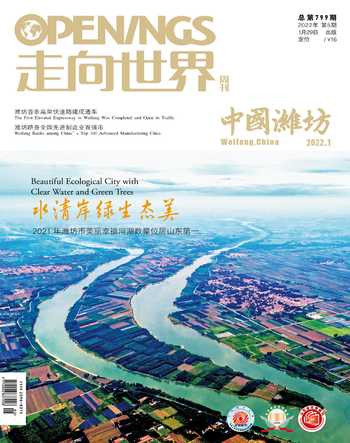【来自山东图片库的故事】寻迹儒风
文/李群

图/侯贺良
英国作家贡布里希在《写给大家的简明世界史》一书中写道:“在孔子学说的影响下,伟大的中华民族比世界上别的民族更加和睦和平地共同生活了几千年。”也许正因为如此,要更好地了解中国,应该从孔子开始;要更好地了解孔子,可以随着摄影师的镜头走进曲阜。
泰山之阳,以曲阜为核心的这个地区是一个独特的精神文化空间。这里,文脉悠长,山水钟灵,因是孔子故里而蜚声中外,更因孔庙、孔林、孔府成为海内外华人心向往之的文化圣地。作为中国历代纪念孔子、推崇儒学的表征,孔庙、孔林、孔府等古迹,展现了古老中国的庙堂文化和诗礼传统,承载了中华民族深沉的精神追求,表达着传统文化蕴含的思想观念、人文精神和道德规范。
久经历史风雨和时代更迭,孔庙、孔林、孔府对于传承发展孔子学说和儒家思想发挥了极其重要的作用。孔庙是纪念、祭祀孔子的地方,里面供奉着150多位历代圣贤大儒,他们是配享、从祀之人。孔子的历代直系子孙居住在孔府,具体负责孔庙祭祀,在弘扬孔子学说方面作用重大。在孔林里,安葬着一代又一代孔子后裔。这个世界上最大的家族墓地,与规模宏大的孔府一样,不仅彰显着家族的荣耀,也为弘扬孔子儒家学说发挥着积极作用。
千年礼乐归东鲁,万古衣冠拜素王。孔庙、孔林、孔府是中国历代文人的精神家园,是认知文化中国的教科书。漫步孔庙,或者走进孔府、孔林,行走在一幢幢石碑前,就好像回到了千百年前的时光里。那些历史上的重要人物都不约而同地出现在这里,让人遐思,令人回味。
千年古城,儒润九州八万里。岁月虽流逝,在曲阜,孔子依旧鲜活地“活在”气势恢宏的建筑群落里,“活在”人们的思想观念和日常行为中,如皓月当空,长明不熄,照耀着一代又一代人。

图/周建文

图/韦婧

图/韦婧
E. H. Gombrich, a British writer, wrote in, “Thanks to Confucius’ teachings, all the people of China lived together for thousands of years, more contentedly and more peacefully than many other peoples of the world.” Perhaps for this reason, we should start with Confucius so as to have a better understanding of China, and could follow the photographer’s lens to approach Qufu so as to have a better understanding of Confucius.
On the south of Mount Tai, the area with Qufu at its core is a unique spiritual and cultural space. With its longstanding cultural context and splendid scenery, it not only is famous at home and abroad for being the hometown of Confucius, but has also become a glamorous cultural shrine for domestic and overseas Chinese people because of the Temple and Cemetery of Confucius, and the Kong Family Mansion. As symbols for commemorating Confucius and advocating Confucianism in all eras of China, such historic sites as the Temple and Cemetery of Confucius, and the Kong Family Mansion reveal the temple culture and poetry & ceremony tradition of ancient China, carry the profound spiritual pursuit of the Chinese nation, and express the thoughts & ideas, humanistic spirits and moral standards of traditional culture.
Millennia-old rites and music come from the hometown of Confucius; immortal civilization and culture originate from Confucius. The “Temple and Cemetery of Confu-cius, and the Kong Family Mansion” have been the spiritual homes of Chinese scholars of all epochs, and for textbooks on learning about Chinese culture. Walking in the Temple of Confucius, or strolling in front of various steles in the Kong Family Mansion and the Cemetery of Confucius, you may feel like stepping back thousands of years. Those historical personages all appeared here at the same time. It is thought-provoking and evocative.
In the millennia-old city, Confucianism has nurtured a vast area. Though time fleets past, Confucius remains “alive” in these imposing building complexes of Qufu, and “alive” in the thoughts, ideas and daily deeds of the people, like a bright moon shining on the people generation after generation.

